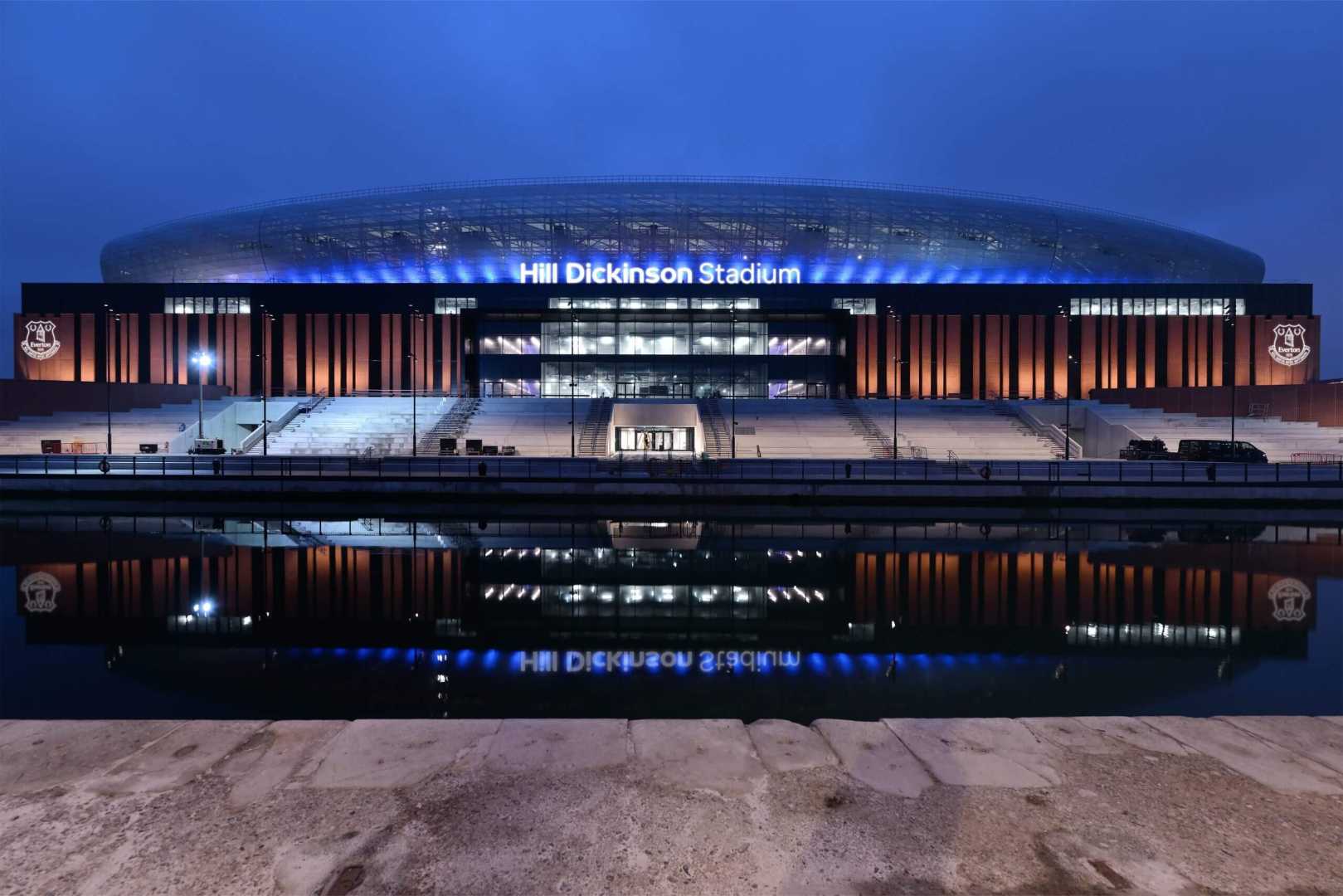Sports
Everton Unveils Hill Dickinson as Naming Partner for New Stadium

LIVERPOOL, England – Everton Football Club announced on Friday that the new stadium at Bramley-Moore Dock will be named the Hill Dickinson Stadium, following a naming rights partnership with the international commercial law firm Hill Dickinson.
The 52,888-seat venue, which will become the men’s team’s home starting next season, replaces Goodison Park. The agreement marks a significant milestone as Everton has been actively searching for a naming rights partner for its £800 million development.
Hill Dickinson, founded in 1810 in Liverpool, operates 11 offices across the UK, Europe, and Asia. While neither Everton nor Hill Dickinson disclosed the financial terms or the length of the agreement, the club described it as “one of the largest stadium naming rights deals in Europe,” estimated to be valued at about £10 million per year.
This naming rights deal follows a previous attempt by USM, controlled by Alisher Usmanov, to secure naming rights for £30 million in 2020. However, Everton severed ties with Usmanov’s companies after Russia’s invasion of Ukraine.
Everton will bid farewell to Goodison Park, their home since 1892, during a final match against Southampton on Sunday. Manager David Moyes acknowledged the need for transition while emphasizing the importance of retaining the club’s connection to the community.
“We’ve got to watch that we don’t stay in the past. We have got to move on. Everton need a new stadium, undoubtedly,” Moyes said. “I hope we still keep the community.”
In other news concerning the team, Moyes confirmed that captain Séamus Coleman will remain on the squad next season despite injury struggles.
As fans anticipate the move to the Hill Dickinson Stadium, reactions have been mixed. Some supporters have poked fun at the name, describing it as lacking the charm of Goodison Park.
The club stated the stadium, set to officially open in August, aims to become a year-round destination for sports, music, and cultural events, promoting economic growth in Liverpool.












